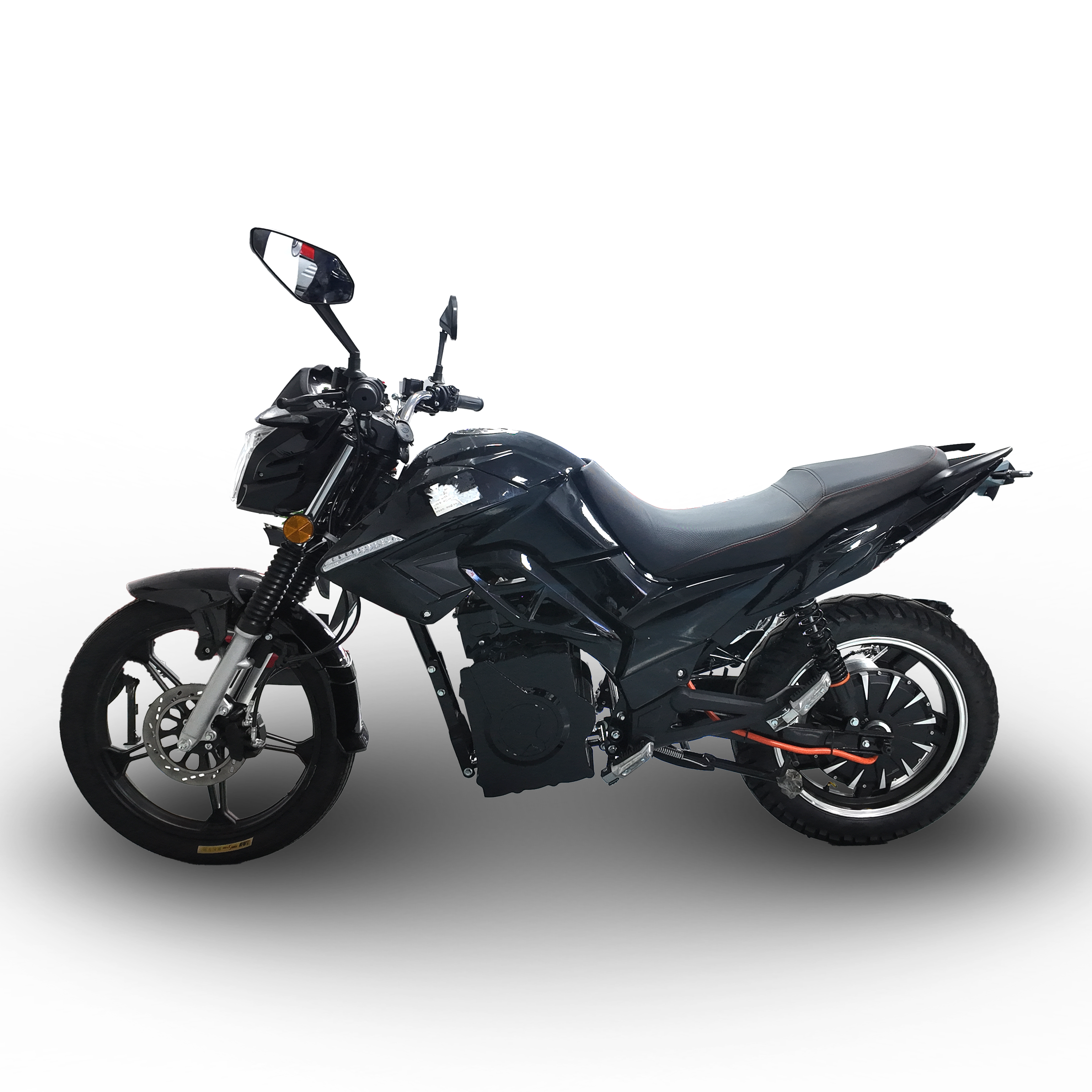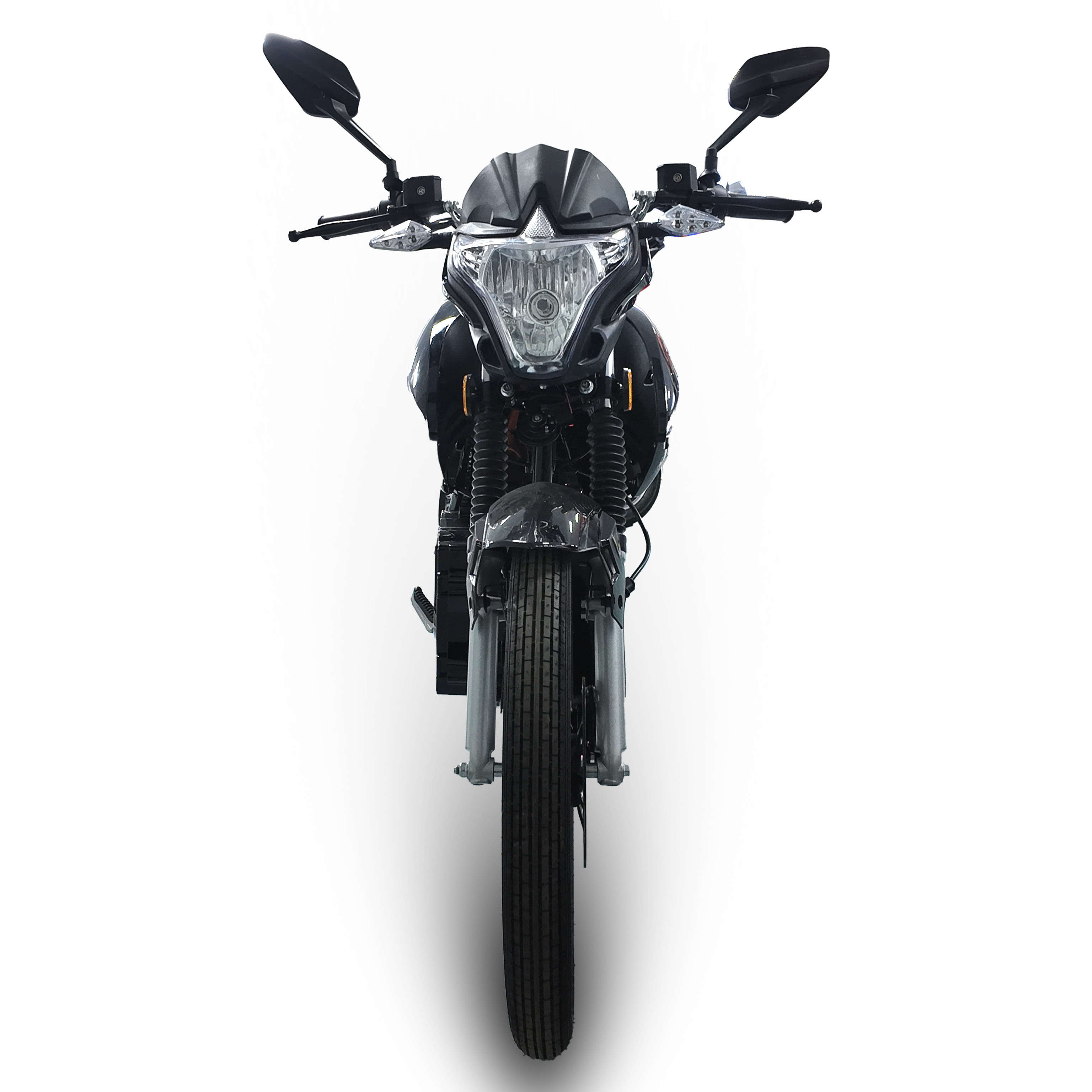صعود الدراجات الثنائية الكهربائية في التنقل الحديث
مع تصاعد الاختناقات المرورية في المناطق الحضرية وبروز القضايا البيئية، برزت الدراجة الكهربائية دراجة نارية كهربائية كحل مقنع للنقل اليومي. تجمع هذه المركبات الابتكارية بين المرونة والإثارة التي توفرها الدراجات النارية التقليدية والتكنولوجيا النظيفة والمستدامة. ويُعد ازدهار شعبية الدراجات الكهربائية انعكاسًا للتحول الأوسع نحو خيارات التنقل الصديقة للبيئة دون التفريط في الأداء أو العملية.
تقدم الدراجات الكهربائية اليوم مزيجًا متطورًا من التكنولوجيا المتطورة والتشغيل الاقتصادي والمسؤولية البيئية. بالنسبة للكثير من الركاب، فإنها لا تمثل مجرد وسيلة نقل فحسب، بل هي تعبير عن تبني حلول مستدامة مع الحفاظ على الإثارة المصاحبة للسفر على متن دراجة ذات عجلتين.
الفوائد البيئية والاقتصادية
انخفاض بصمة الكربون
الدراجات النارية الكهربائية تتميز المركبات الكهربائية بأنها واعية بيئيًا، حيث لا تطلق أي انبعاثات مباشرة أثناء التشغيل. وعند استخدام مصادر طاقة متجددة، تمثل هذه المركبات واحدة من أكثر خيارات النقل نظافةً المتاحة. ويصبح الأثر البيئي أكثر أهمية عند النظر في سيناريوهات التنقل اليومية، حيث تسهم المركبات التقليدية بشكل كبير في تلوث الهواء في المدن.
أظهرت الدراسات أن الانتقال من دراجة نارية تقليدية إلى دراجة نارية كهربائية يمكن أن يقلل الانبعاثات الكربونية المتعلقة بالنقل لشخص فردي بنسبة تصل إلى 90%. يجعل هذا الانخفاض المذهل الدراجات النارية الكهربائية خيارًا جذابًا للمستخدمين الواعين بالبيئة والذين يرغبون في تقليل تأثيرهم البيئي.
التشغيل اليومي الاقتصادي
تظهر المزايا الاقتصادية للدراجات النارية الكهربائية بشكل خاص أثناء الاستخدام اليومي. وعلى الرغم من أن سعر الشراء الأولي قد يكون أعلى من الدراجات النارية التقليدية، فإن التوفير على المدى الطويل يكون ملحوظًا. يكلف الكهرباء أقل بكثير من البنزين، مما يؤدي عادةً إلى تكاليف تشغيل تقدر ببضع بنسات لكل ميل.
تُعد تكاليف الصيانة أيضًا أقل عادةً مع الدراجات النارية الكهربائية. وبما أنها تحتوي على عدد أقل من الأجزاء المتحركة ولا تحتاج إلى تغيير الزيت أو شمعات الإشعال أو صيانة ناقل الحركة المعقدة، يمكن للمالكين توفير مئات الدولارات سنويًا على الصيانة الروتينية. تتراكم هذه التوفيرات بشكل كبير على مدى عمر الدراجة، مما يجعل الدراجات النارية الكهربائية خيارًا اقتصاديًا منطقيًا للمستخدمين اليوميين.

مزايا الأداء والعملية
تجربة قيادة حديثة
توفر الدراجات النارية الكهربائية عزمًا فوريًا، مما يمنح تسارعًا سلسًا وقويًا من الثبات. تجعل هذه الخاصية الدراجات الكهربائية مناسبة بشكل خاص للتنقل في المدن، حيث تكون التوقفات المتكررة والانطلاق شائعين. كما أن غياب ضجيج المحرك يخلق تجربة قيادة هادئة بشكل فريد، مما يقلل من التوتر أثناء الرحلات اليومية.
تُحسّن المزايا المتقدمة مثل الفرامل المُعادة توليد الطاقة من كفاءة استخدام الطاقة، فضلاً عن توفير تحكم أفضل في حركة المرور المتقطعة. تحتوي العديد من الدراجات الكهربائية الحديثة الآن على مزايا اتصال ذكية تتيح للسائقين مراقبة حالة البطارية، والتخطيط للمسارات، وتتبع الأداء عبر تطبيقات الهواتف الذكية.
مدى السير واعتبارات الشحن
تقدم معظم الدراجات الكهربائية الحديثة مدى كافيًا لاحتياجات التنقّل اليومية، وعادة ما يتراوح بين 60 إلى 150 ميلًا بشحنة واحدة. تُعد هذه السعة كافية بسهولة لتغطية متوسط مسافة التنقّل اليومية البالغة 30 ميلًا ذهابًا وإيابًا، مع وجود احتياطي كافٍ لمهام إضافية أو تغيير المسار.
تتواصل البنية التحتية للشحن في التوسع، مع توفير العديد من أماكن العمل والمرافق العامة محطات شحن الآن. الرئيسية يظل الشحن خيارًا مريحًا، حيث يتيح للسائقين بدء كل يوم بشحنة بطارية كاملة. تسمح تقنيات الشحن السريع في الموديلات الحديثة باستعادة مدى كبير في غضون 30 دقيقة فقط، مما يوفّر مرونة في الرحلات الأطول.
المزايا العملية للمستخدمين اليوميين
فوائد التنقل في المدن
تتفوق الدراجات الكهربائية في البيئات الحضرية، حيث تقدم قدرة عالية على المناورة في حركة المرور المزدحمة. يسمح حجمها الصغير بسهولة في الركن، وتوفر العديد من المدن مناطق ركن مخصصة للدراجات النارية. كما يُسمح في بعض المناطق للدراجات الكهربائية باستخدام مسارات المركبات متعددة الأشخاص (HOV) أو تقديم رسوم عبور منخفضة، مما يعزز من مزاياها في التنقل اليومي.
يُعد الطابع الخفيف الوزن للدراجات الكهربائية يجعلها مثالية للتنقل في شوارع المدينة المزدحمة والمساحات الضيقة. ويُقدّر صمت تشغيلها بشكل خاص في المناطق السكنية خلال رحلات الصباح الباكر أو المساء المتأخر، مما يحافظ على علاقات جيدة مع الجيران.
الاعتبارات المتعلقة بالطقس والراحة
تأتي الدراجات الكهربائية الحديثة مزودة بخيارات متنوعة لحماية من الطقس وميزات راحة. توفر الزجاجات الأمامية ومقبض التسخين والأقسام المقاومة لعوامل الطقس تخزينًا عمليًا على مدار السنة. كما أن غياب حرارة المحرك يُحسّن من الراحة أثناء ركوب الدراجة في الطقس الدافئ.
تقدم العديد من الشركات المصنعة الآن طرازات محددة موجهة نحو التنقّل اليومي مع تصميمات هندسية تركز على الراحة أثناء الاستخدام اليومي. تساهم هذه الميزات، إلى جانب التشغيل السلس والخالي من الاهتزازات في المحركات الكهربائية، في تقليل التعب بشكل كبير لدى السائق أثناء التنقّل المنتظم.
الأسئلة الشائعة
كم يستغرق شحن دراجة كهربائية؟
تختلف أوقات الشحن حسب الطراز ونوع الشاحن. باستخدام مقبس كهربائي منزلي قياسي، يتم شحن معظم الدراجات النارية الكهربائية بالكامل خلال 4-8 ساعات. مع محطات الشحن من المستوى الثاني، يقل هذا الوقت إلى 2-4 ساعات، بينما يمكن الشحن السريع بالتيار المستمر توفير 80٪ من الشحن في حوالي 30 دقيقة.
ما هو العمر الافتراضي لبطارية الدراجة النارية الكهربائية؟
عادةً ما تدوم بطاريات الدراجات النارية الكهربائية الحديثة من 8 إلى 10 سنوات أو أكثر من 100000 ميل تحت ظروف الاستخدام الطبيعية. تقدم العديد من الشركات المصنعة ضمانات تصل إلى 5 سنوات أو أكثر على أنظمة البطاريات الخاصة بها، مما يضمن الموثوقية على المدى الطويل للتنقل اليومي.
هل يمكن قيادة الدراجات النارية الكهربائية تحت المطر؟
نعم، صُمّمت الدراجات الكهربائية بقطع مقاومة للطقس ويمكن تشغيلها بأمان في الظروف الرطبة. يتم حماية أنظمتها الكهربائية بشكل جيد ومغلقة ضد التعرض للماء، على الرغم من أنه يجب على السائقين اتباع نفس احتياطات السلامة التي تُتبع مع الدراجات التقليدية في حالة سوء الأحوال الجوية.
ما هي تكاليف التأمين مقارنة بالدراجات النارية التقليدية؟
تُعد تكاليف التأمين للدراجات النارية الكهربائية عمومًا مماثلة لتلك الخاصة بالدراجات النارية التقليدية، على الرغم من اختلاف الأسعار حسب قيمة الموديل وموقعك الجغرافي. تقدم بعض شركات التأمين خصومات على المركبات الكهربائية، حيث تعترف بتأثيرها البيئي الأقل وبمزايا الأمان المتقدمة التي تتمتع بها.

